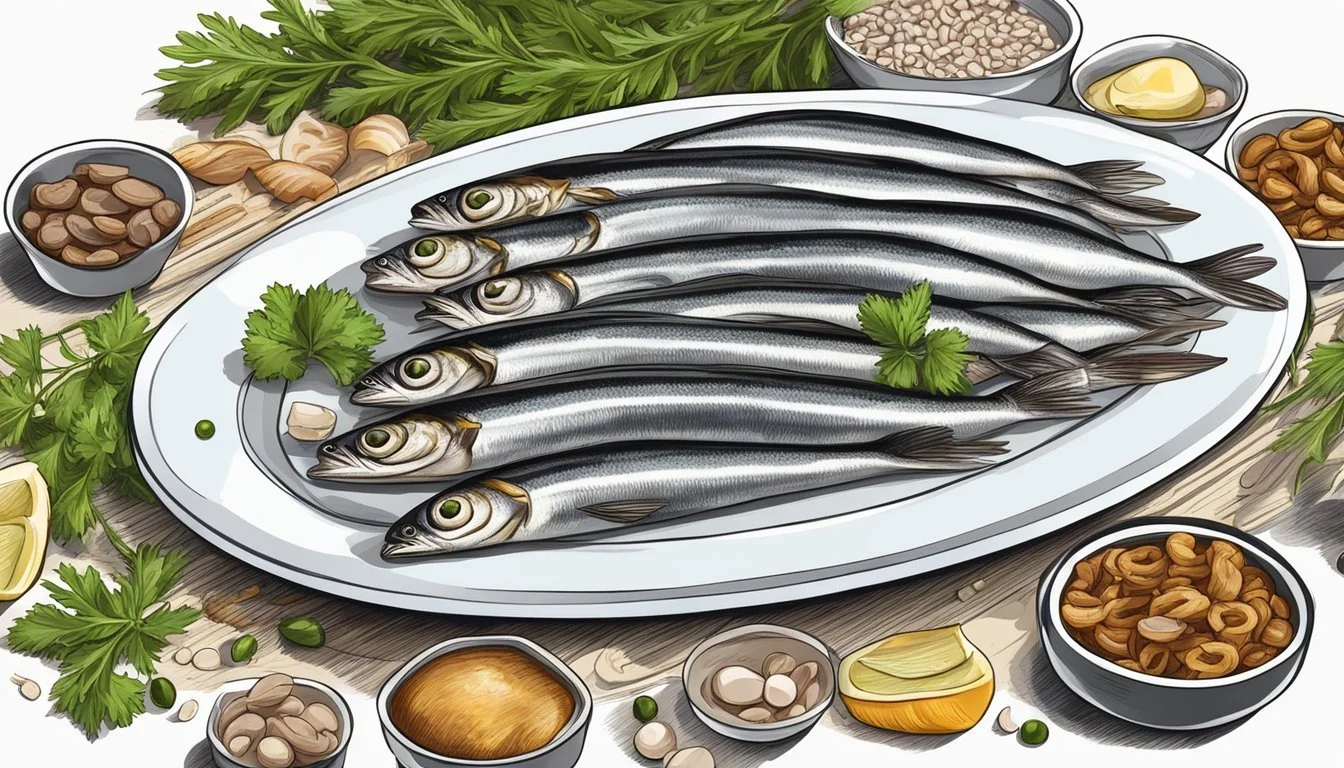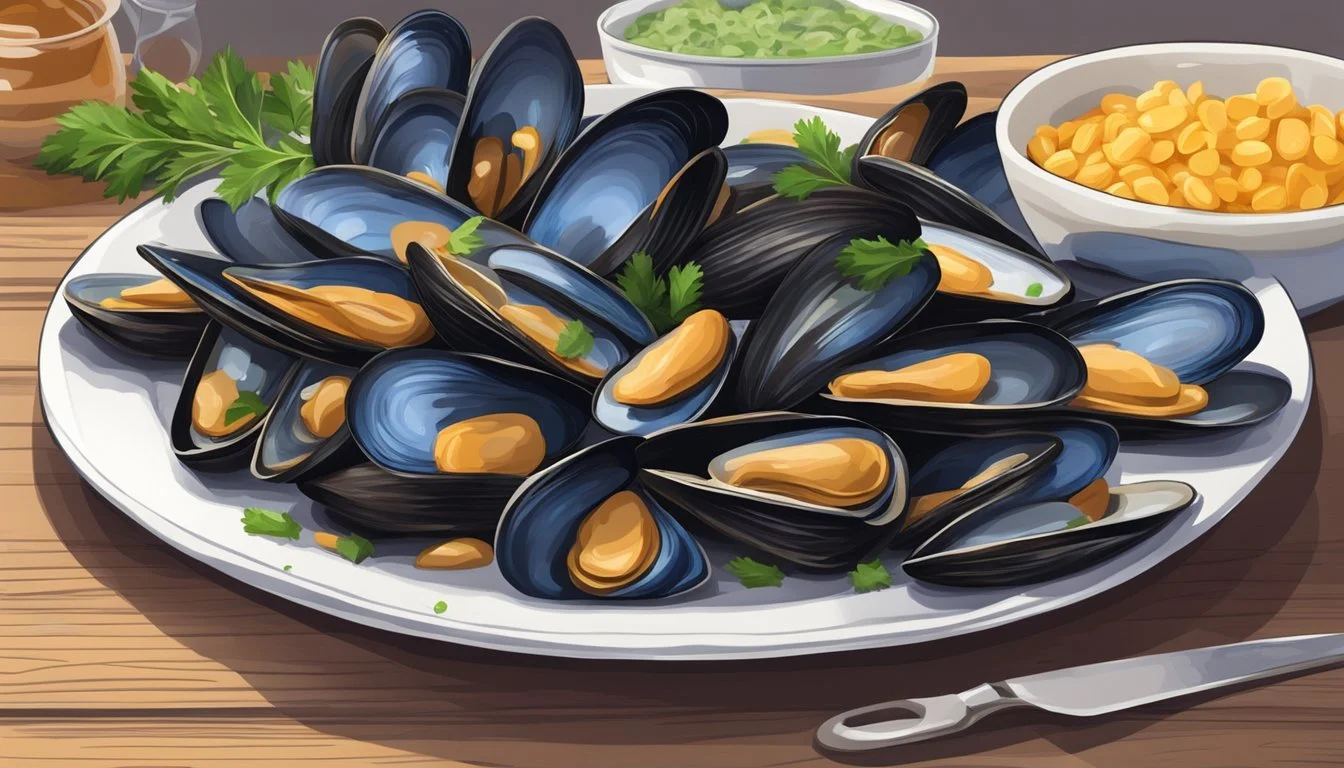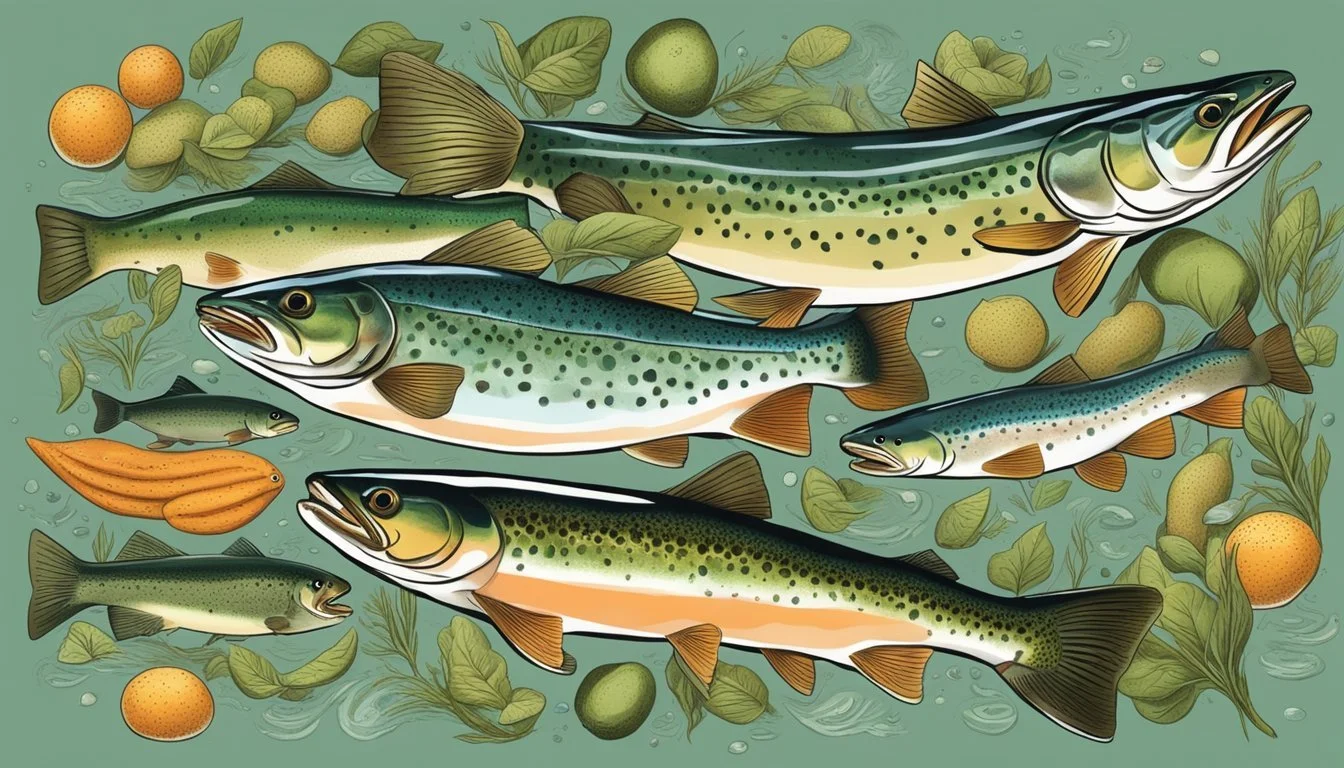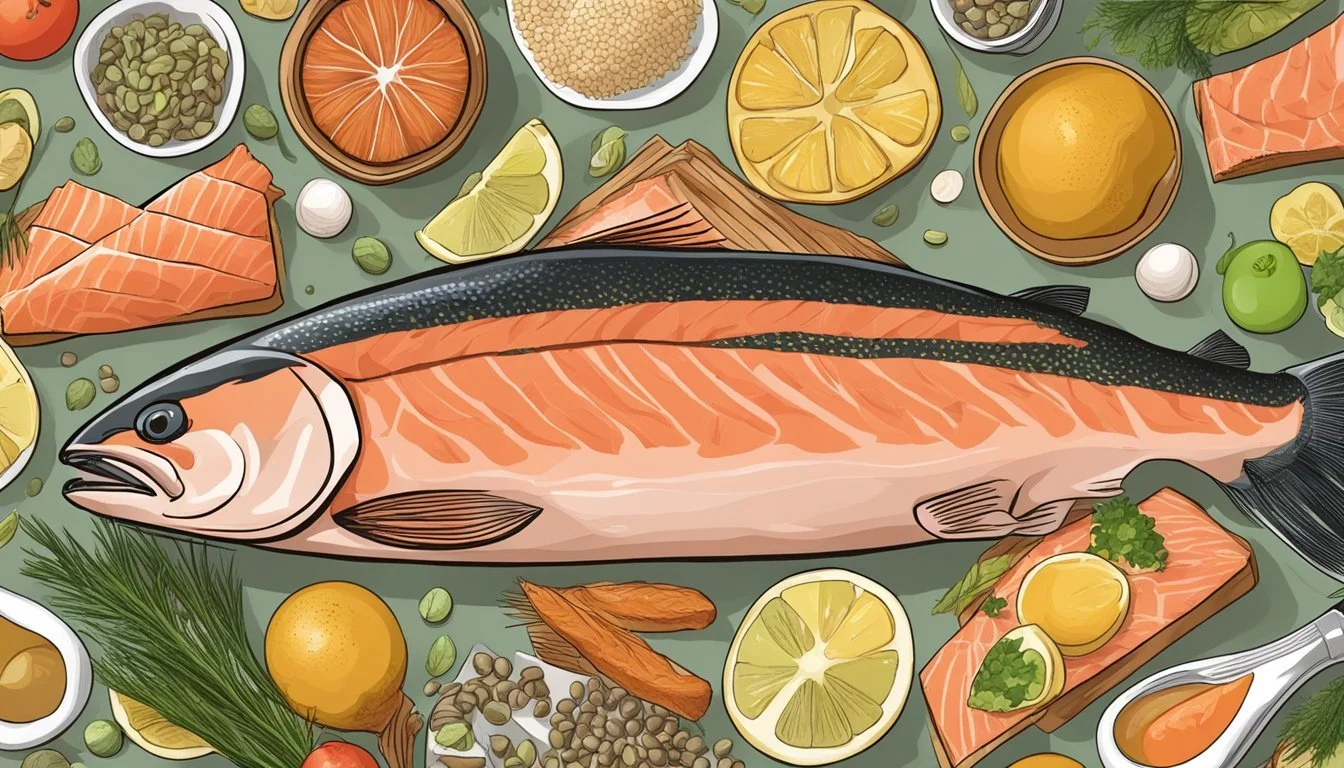Top Foods High in Purines
Essential Guide for Diet Management
Uric acid is a natural waste product that forms when the body breaks down purines, which are found in certain foods and drinks. For individuals susceptible to gout or those who are managing high uric acid levels, understanding which foods are high in purines is crucial. Knowing which foods can contribute to elevated uric acid levels can help in making informed dietary choices.
By following a diet that limits foods high in purines, individuals can better manage conditions like gout and reduce the risk of flare-ups. This includes being aware of both common high-purine foods and less obvious sources that may affect uric acid levels.
1) Anchovies
Anchovies are small fish that are commonly consumed in various dishes around the world. They are popular for their strong, savory flavor.
Anchovies have a high purine content. Purines are natural substances found in certain foods that can contribute to increased levels of uric acid in the body when metabolized.
Elevated uric acid levels can lead to gout flare-ups. Gout is a form of arthritis characterized by sudden, severe pain and swelling in the joints.
People prone to gout are often advised to limit their intake of high-purine foods like anchovies. Including low-purine alternatives in one's diet can help manage and reduce the risk of gout attacks.
Anchovies are often used in Mediterranean cuisine. Popular dishes include Caesar salad, pasta sauces, and pizza toppings.
Anchovies are also a rich source of omega-3 fatty acids. These fatty acids benefit cardiovascular health and may have anti-inflammatory properties.
Despite their nutritional benefits, those managing uric acid levels should consume anchovies in moderation. Consulting a healthcare provider for personalized dietary advice is always recommended for individuals with gout.
2) Sardines
Sardines are known for their high purine content. Consuming sardines can lead to increased levels of uric acid in the body.
A 3.5 oz (100 g) serving of sardines can produce more than 200 mg of uric acid. This makes them a significant contributor to uric acid buildup, which can be problematic for individuals prone to gout.
Despite their high purine levels, sardines are also rich in omega-3 fatty acids. Omega-3s are beneficial for heart health and have anti-inflammatory properties.
Some argue that the health benefits of omega-3 might outweigh the risks of increased uric acid levels. However, people with gout or high uric acid levels should be cautious when consuming sardines.
Limiting sardine intake is typically recommended in gout management. Consulting with a healthcare provider can help determine appropriate dietary choices based on individual health needs.
3) Mackerel
Mackerel is a popular type of fish that is often enjoyed for its rich flavor and nutritional benefits.
However, for people managing uric acid levels, mackerel is known to be a high-purine food. When consumed, purines are broken down into uric acid, potentially contributing to gout flare-ups.
It's high on the list of seafoods that should be limited for those prone to gout attacks.
Despite its nutritional benefits, including high omega-3 fatty acid content, individuals at risk of gout should be cautious with mackerel.
Moderation is key to managing uric acid levels effectively while still enjoying the occasional serving of this nutritious fish.
4) Herrin
Herring is a type of fish known for its high purine content.
Purines are compounds that, when broken down, form uric acid in the body. Elevated uric acid levels can lead to gout flare-ups.
Herring is particularly rich in purines compared to other fish. This makes it a risky choice for those prone to gout.
Despite its high purine content, herring is also valued for its nutritional benefits. It is an excellent source of omega-3 fatty acids, which have various health benefits.
People with gout should limit their intake of herring to avoid increasing their uric acid levels.
Moderation is key for those who enjoy this fish but need to manage their gout symptoms effectively.
5) Scallops
Scallops are popular seafood known for their sweet, tender flavor. Many people enjoy them grilled, seared, or added to various dishes. Though delicious, scallops are high in purines. For individuals managing gout, it is important to be cautious with their intake.
Purines in scallops break down into uric acid in the body. Elevated uric acid levels can contribute to gout flares. Reducing or limiting scallop consumption may help manage uric acid levels effectively.
Scallops are nutritious and provide essential vitamins and minerals. Despite this, individuals prone to gout should consider alternatives. Choosing low-purine seafood like flounder or tilapia can help minimize the risk of gout attacks while still enjoying seafood.
6) Mussels
Mussels are a type of shellfish commonly found in both fresh and saltwater environments. They are known for being high in protein and other essential nutrients. However, they are also high in purines, which can be problematic for individuals monitoring their uric acid levels.
When mussels are consumed, the purines they contain break down into uric acid in the body. This increase in uric acid can be a concern for people with gout, a condition characterized by painful inflammation of the joints due to excess uric acid.
It is recommended for individuals prone to gout or high uric acid levels to limit their intake of mussels. Although mussels can be part of a balanced diet, consuming them in moderation is key to managing uric acid levels effectively.
For those who enjoy mussels but need to control their purine intake, occasionally substituting them with lower-purine seafood options can be a practical approach to maintaining dietary variety while managing health.
7) Trout
Trout is a common type of fish that many enjoy due to its delicate flavor and versatility in cooking.
In the context of uric acid and gout, trout falls into the category of moderate purine sources. Moderate purine foods typically contain between 100 to 200 mg of purines per 100 grams.
Consuming moderate purine fish like trout can be a part of a balanced diet for those managing uric acid levels. It's important to monitor portion sizes and frequency when including trout in meals.
Preparation methods such as grilling, baking, steaming, or poaching are recommended to keep the dish healthy and flavorful. These methods avoid adding excessive fats and cholesterol, which can complicate gout management.
While trout is not the highest in purines, those with severe gout should remain cautious and consult with a healthcare provider about its inclusion in their diet.
Moderation and balanced eating are key principles in managing conditions like gout, where diet plays a crucial role.
8) Cod
Cod is a type of fish that is often recommended to those looking to reduce their uric acid levels due to its moderate purine content.
While it contains purines, its levels are lower compared to other seafood like sardines and anchovies.
Moderation is key when consuming cod to avoid triggering gout flare-ups.
Regularly consuming small portions of cod can provide essential nutrients like omega-3 fatty acids, which have anti-inflammatory properties.
For individuals with gout, cod can be included in the diet, balancing with low-purine foods and other dietary recommendations to manage uric acid levels effectively.
Careful portion control will help maintain low uric acid levels while enjoying the health benefits of cod.
9) Salmon
Salmon is frequently mentioned in discussions about diet and uric acid due to its nutritional profile. While salmon is a rich source of omega-3 fatty acids, it is also a moderate purine source.
Purines break down into uric acid in the body, and excessive uric acid can lead to conditions like gout.
In terms of purine content, salmon falls into the moderate category, containing around 100-200 mg of purines per 100 grams. This makes it a better option among seafood for those managing their uric acid levels compared to high-purine fish like sardines and anchovies.
The omega-3 fatty acids in salmon can provide additional health benefits, including anti-inflammatory properties. This aspect is particularly beneficial for gout patients, as inflammation is a key symptom during flare-ups.
For those with gout, moderation is key. Including salmon in the diet in controlled portions can be a part of a balanced approach to managing uric acid levels while still reaping nutritional benefits.
Salmon provides important proteins and nutrients essential for overall health, making it a viable option when carefully managed.
10) Tuna
Tuna is a popular fish known for its nutritional benefits, including high protein content and omega-3 fatty acids.
Despite its health benefits, tuna is also high in purines. Fresh tuna contains approximately 157.4 mg of purines per 100 g, while canned tuna has about 116.9 mg per 100 g.
High purine foods can increase uric acid levels in the body, making tuna a less ideal choice for those with gout or high uric acid levels.
To manage uric acid, it is advisable for individuals prone to gout to limit their tuna intake. Opting for lower-purine fish or seafood can be a better alternative.
What is Uric Acid?
Uric acid is a natural waste product resulting from the breakdown of purines in the body. It plays a role in human physiology, but elevated levels can lead to health issues like gout.
Role in the Body
Uric acid is produced when purines, which are substances found in certain foods and drinks, are metabolized. The liver processes these purines, resulting in uric acid. Most uric acid dissolves in the blood, passes through the kidneys, and exits the body in urine.
A small amount of uric acid remains in the bloodstream. It functions as an antioxidant, protecting the blood vessels from damage. This balance is crucial for maintaining overall health. Disruptions can cause uric acid to accumulate excessively, leading to conditions such as gout.
Causes of High Uric Acid Levels
High levels of uric acid, or hyperuricemia, occur when the body either produces too much uric acid or fails to excrete enough of it. Major contributors include a high-purine diet, rich in foods such as red meat, seafood, and alcohol, particularly beer.
Obesity is another factor. Excess weight hampers the kidneys' ability to eliminate uric acid effectively. Additionally, certain medical conditions, such as hypertension and diabetes, can exacerbate this issue. Genetics also play a role, predisposing some individuals to higher uric acid levels, irrespective of diet or lifestyle choices.
Health Implications of High Uric Acid
Elevated uric acid levels in the body can lead to several health issues, particularly influencing the joints and kidneys.
Gout
Gout is a form of arthritis primarily caused by high uric acid levels. When uric acid accumulates in the blood, it can form sharp crystals in the joints, leading to severe pain and inflammation.
Common symptoms include sudden, intense joint pain, often in the big toe, swelling, redness, and stiffness. Foods rich in purines, such as red meat and certain seafood, can trigger gout attacks.
Managing diet by reducing purine-rich foods and alcohol can help reduce uric acid levels and prevent gout flares.
Kidney Stones
High uric acid levels can contribute to the formation of uric acid kidney stones. These stones are hard deposits that form in the kidneys and can cause significant pain and urinary issues.
Symptoms may include severe pain in the back or side, blood in the urine, and a frequent urge to urinate. Dehydration can worsen the condition, as it leads to concentrated urine, making stone formation more likely.
Ensuring adequate hydration and limiting intake of high-purine foods can help in reducing the risk of kidney stones.
Managing Uric Acid Levels
Managing uric acid levels involves dietary changes and potential medical treatments. Focus on low-purine foods and consult healthcare providers for medication options.
Dietary Recommendations
A diet low in purines can help reduce uric acid levels in the body. Foods high in purines, such as organ meats, red meat, and certain seafood (like anchovies and sardines), should be limited or avoided.
Recommended Foods:
Low-fat dairy: Milk, yogurt
Fruits: Berries, cherries, and citrus fruits
Vegetables: Leafy greens, tomatoes, and bell peppers
Whole grains: Brown rice, oats
Plant-based proteins: Tofu, lentils
Foods to Avoid:
High-purine meats: Liver, kidney, and sweetbreads
Seafood: Mussels, scallops, and trout
Alcohol: Beer and spirits
Sugary foods: Sodas and fruit juices
Drinking plenty of water and maintaining a healthy weight are also crucial for managing uric acid.
Medical Treatments
Medical treatments may be necessary if dietary adjustments alone do not sufficiently lower uric acid levels.
Common Medications:
Urate-lowering therapies: Allopurinol, febuxostat
Anti-inflammatory drugs: NSAIDs (like ibuprofen), colchicine
Corticosteroids: Prednisone, taken orally or via injection
These medications help either reduce uric acid production or improve its excretion. Always consult a healthcare provider to determine the appropriate medication and dosage based on individual health needs and conditions. Regular blood tests might be recommended to monitor uric acid levels and adjust treatments as necessary.









